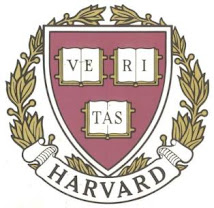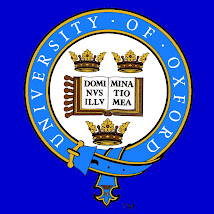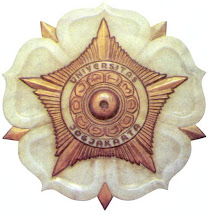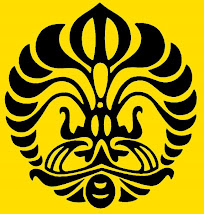
Al-Azhar University (Arabic: الأزهر الشريف; Al-ʾAzhar al-Šarīf, "the Noble Azhar"), is an Egyptian institution of higher learning. It is connected to Al-Azhar mosque in Old Cairo. Al-Azhar (in Arabic: the most flourished and shining) was so called either because it was surrounded by great glittering palaces,[citation needed] or as a hopeful disposition, or after the name of Sayeda Fatima Al-Zahra', daughter of the Prophet Mohammed. The mosque was built in two years from 969 AD, the year in which its foundation was laid. The Madrasah connected with it was founded in 988 AD. Studies began in Al-Azhar in the month of Ramadan by October 975 AD, when Chief Justice Abul Hasan Ali ibn Al-No'man started teaching the book "Al-Ikhtisar", on Shiite jurisprudence.
According to Encyclopedia Britannica, "Al-Azhar was founded by the Fatimids, but Saladin, after ousting the Fatimids, consecrated it to Sunni learning in the 12th century"[1] [2]. It is one of the oldest operating universities in the world.
Contents
- 1 Reputation
- 2 Politics
- 3 Literature
- 4 Political views
- 5 Notable persons associated with the university
- 6 See also
- 7 References
- 8 External links
Reputation
Among the university's stated objectives is the propagation of Islamic religion and culture and the Arabic language (the language of the Qur'an.) To that end, it maintains a committee of ulemas (Islamic scholars) to judge on individual Islamic questions, operates a printing establishment for printing the Qur'an, and trains government-appointed preachers in proselytization (da'wa).
Politics
In 1961, Al-Azhar was re-organized by the Nasser Government and several secular faculties were added to the university, such as medicine, engineering and agriculture. An Islamic women's faculty was also added in the same year, six years after Zaib-un-Nissa Hamidullah became the first woman to speak at the university.[citation needed]
Al-Azhar is run by a Supreme Council headed by a Grand Imam, known as "Sheikh Al-Azhar", which decides on matters pertaining to general policy. Unlike most universities, it maintains a sectarian admissions policy and does not admit students who are not practicing Islam,[citation needed] thus it combines the institutions of a Madrassah and theological seminary, with those of the faculties established in 1961.
Literature
Al-Azhar library, which was consolidated in 1897, is considered second in range, variety and importance only to the Egyptian National Library and Archives in Cairo. It possesses 595,668 books or manuscripts, some dating back to the 8th century.[citation needed] The library does not collect non-Islamic literature.[citation needed]
Since 1929, Al-Azhar has published a magazine (now monthly) whose stated mission is to advertise religious rules, subjects related to Islamic literature, and basic jurisprudence (shariah), including sections on history, biographies, translated texts and news concerning the Muslim world.
In 2005, the Al-Azhar online document archive was launched[citation needed]. This is a joint venture between the university and the HH Sheikh Mohammed Bin Rashid Al Maktoum IT Education Project (ITEP) in Dubai.[citation needed] The archive intends to eventually give access to all manuscripts (c. 7 million pages) in Al Azhar library.
Political views
Muhammad Sayyid Tantawy, the current Imam of Al-Azhar, has declared that the perpetrators of the 9/11 attacks and suicide bombers are "heretics" who are not following the true path of Islam.[citation needed] In a recent conference in Indonesia, he asked all "true believers" to deny proponents of extremist and heretical forms of Islam places to speak in the mosque, thus preventing the spread of violent ideologies.
Ali Gomaa', the Egyptian Mufti associated with Al-Azhar, has also declared that Islam authorizes the thwarting and eradication of insurgents who kidnap and kill civilians in Iraq since they wreak havoc on Earth.[citation needed]
Sheikh Tantawy has mentioned that among the priorities of Muslims are "to master all knowledge of the world and the hereafter, not least the technology of modern weapons to strengthen and defend the community and faith". He adds that "mastery over modern weaponry is important to prepare for any eventuality or prejudices of the others, although Islam is a religion of peace."[5].
Sheikh Tantawy also reasserts that his is the best faith to follow (a tenet common to proponents of many religions) and that Muslims have the duty of active da'wa. He has made declarations about Muslims interacting with non-Muslims who are not a threat to Muslims. There are non-Muslims living apart from Muslims and who are not enemies of Islam ("Muslims are allowed to undertake exchanges of interests with these non-Muslims so long as these ties do not tarnish the image of the faith"), and there are "the non-Muslims who live in the same country as the Muslims in cooperation and on friendly terms, and are not enemies of the faith" ("in this case, their rights and responsibilities are the same as the Muslims so long as they do not become enemies of Islam").
On freedom of speech
In October 2007, Muhammad Sayyid Tantawy, the current Imam of Al-Azhar, drew allegations of stifling freedom of speech when he asked the Egyptian government to toughen its rules and punishments against journalists. During a Friday sermon in the presence of Egyptian Prime Minister Ahmed Nazif and a number of ministers, Tantawy is purported to have stated that journalism which contributes to the spread of false rumours rather than true news deserves to be boycotted, and that it is tantamount to sinning for readers to purchase such newspapers. Tantawy, a supporter of Egyptian President Hosni Mubarak, also called for a punishment of eighty lashes to "those who spread rumors" in an indictment of speculation by journalists over Mubarak's ill health and possible death.[6][7]
This is not the first time that he has criticized the Egyptian press regarding its news coverage nor is it the first time he in return has been accused by the press of opposing freedom of speech. During a religious celebration in the same month, Tantawy released comments alluding to "the arrogant and the pretenders who accuse others with the ugliest vice and unsubstantiated charges". In response, Egypt's press union issued a statement suggesting that Tantawy appeared to be involved in inciting and escalating a campaign against journalists and freedom of the press.[8]
Notable persons associated with the university
Al-Azhar University has had a huge impact on the religious, cultural and political arena in Egypt, the Middle East, and the whole Islamic world (see the list of notable persons below). Numerous persons of note have graduated from the university including Taha Hussein, one of the pre-eminent Arab intellectuals and writers, and a leader in the twentieth century modernist movement in Egypt. Saad Zaghlul, former Egyptian prime minister and leading political figure in the first half of the same century especially against the British occupation of Egypt, was also an alumnus of Al-Azhar. Before them was Muhammad Abduh, founder of Islamic Modernism and respected Islamic scholar, and Ahmed Orabi who was the first Egyptian army officer and the leader of the Urabi Revolt. The list of notable alumni also includes Hassan-i Sabbah, founder of the Assassins in the 11th century. Hassan al-Banna, founder of the Muslim Brotherhood and purported mastermind behind the assassination of Egyptian prime minister Mahmud Fahmi Nokrashi in 1948[citation needed], graduated from the university. Sheikh Ahmed Yassin, the founder of Hamas, was also an alumnus.
Before 1800
1800 - early 1900s
- Muhammad Abduh, founder of Islamic Modernism.
- Izz ad-Din al-Qassam, founder and leader of Black Hand
- Yusuf Ma Dexin, first person to translate the Qur'an into Chinese and a leader of the Panthay Rebellion
- Mohammad Amin al-Husayni, Mufti of Jerusalem, an Arab nationalist and a Muslim leader and anti-Zionist in Palestine and Egypt.
- Ahmed Orabi, the first Egyptian army officer and an army general leading the Urabi Revolt.
1910-1950s
- Hassan al-Banna, founder of the Muslim Brotherhood (Hassan al-Banna graduated from Daru 'Ulom which is an affiliate of Cairo University)
- Omar Abdel Rahman, leader of Al-Gama'a al-Islamiyya
- Taqiuddin al-Nabhani, a Sunni, Shafi'i, Sufi, Islamic jurist, theologian, and founder of the Islamist Hizb ut-Tahrir organization.
- Sheikh Ahmed Yassin, co-founder and leader of Hamas
- Saad Zaghlul leader of 1919 revolution in Egypt.
- Taha Hussein, Influential Egyptian writer and intellectual
- Ibrahim Mukhtar, first Mufti of Eritrea
1950-
- Shire Jama Ahmed, Somali linguist who devised a unique Latin script for the Somali language[9]
- Maumoon Abdul Gayoom, President of the Republic of the Maldives[10]
- Nik Aziz Nik Mat, Menteri Besar (Chief Minister) of the Islamic state of Kelantan in Malaysia.
- Azizan Abdul Razak, Menteri Besar (Chief Minister) of the Malaysian state of Kedah.
- Mahmud Shaltut, Grand Sheik of Azhar, issued in 1961 a Fatwa (Islamic ruling), declaring that Al-Azhar recognizes Shi'ism as a valid branch of Islam.
- Taha Jabir Alalwani, President of Cordoba University, former Chairman of the Fiqh Council of North America, and the President of the International Institute of Islamic Thought in Herndon, Virginia (USA).[1]
See also
- Al-Azhar University - Gaza
- List of Egyptian universities
- List of mosques
- Timeline of Islamic history
- Fatwas:

References
- ^ Britannica article
- ^ Encyclopedia Britannica p.37 1993 edition ISBN:0852295715
- ^ a b Alatas, Syed Farid, “From Ja¯mi`ah to University: Multiculturalism and Christian–Muslim Dialogue”, Current Sociology 54 (1): 112-32
- ^ Goddard, Hugh (2000), A History of Christian-Muslim Relations, Edinburgh University Press, p. 99, ISBN 074861009X
- ^ "The Grand Imams of Al-Azhar". Retrieved on 2006-06-24.
- ^ allheadlinenews.com
- ^ aljazeera.net(Arabic Online)
- ^ International Herald Tribune
- ^ David D. Laitin, Politics, Language, and Thought: The Somali Experience, (University Of Chicago Press: 1977), p. 102
- ^ Gayoom, Maumoon Abdul - MSN Encarta
External links
- Al-Azhar University
- Documentary video film on Al-Azhar University in Arabic only
- History and organization of Al-Azhar
- Islam for Today
- Muslim Heritage
- Al-Azhar University rules for international students admission (Arabic only)





















Tidak ada komentar:
Posting Komentar